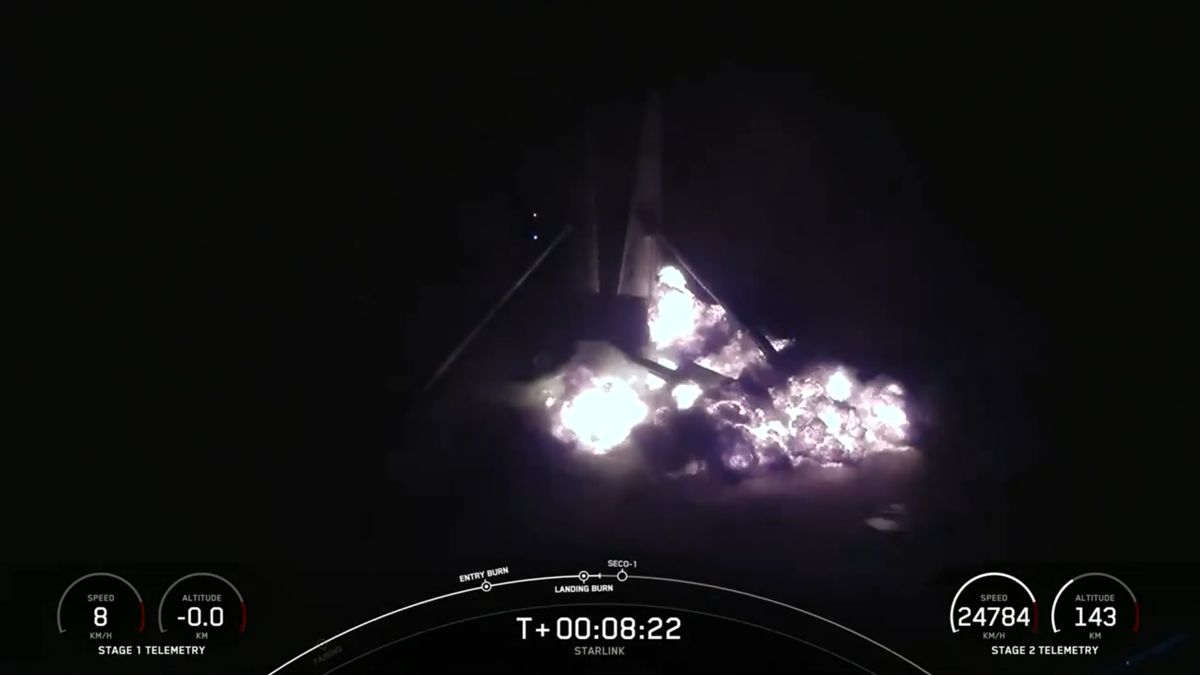
SpaceX’s Falcon 9 rocket has been grounded, at least for a while.
A Falcon 9 rocket successfully launched 21 of SpaceX’s Starlink satellites into orbit this morning (August 28), sending them into orbit on the rocket’s record-breaking 23rd first-stage mission. However, the booster hit a snag during its return to Earth, flipping over shortly after landing at sea on a SpaceX drone ship.
The US Federal Aviation Administration announced today that it is ordering an investigation into the landing failure — and that the Falcon 9 will not fly again until that investigation is complete.
SpaceX will conduct the investigation, but the FAA will oversee the work and evaluate its results.
“The Falcon 9’s return to flight is dependent on the FAA determining that any system, process or procedure related to the anomaly does not impact public safety,” FAA officials said in an emailed statement.
“In addition, SpaceX may need to request and receive FAA approval to amend its license, which includes any corrective actions, and meet all other license requirements,” they added.
Related to: Starlink Satellite Train: How to See and Track It in the Night Sky
It’s unclear how long this process will take. But a solution is likely to come relatively quickly; SpaceX works fast, after all. The company got a Falcon 9 back in flight last month just 15 days after the rocket’s second stage suffered a glitch, resulting in the loss of 23 Starlink satellites.
This morning’s accident was not as serious as that one, as it only affected the rocket’s landing; the Falcon 9 upper stage deployed the Starlink satellites into low Earth orbit as planned.
However, even a few days of downtime could impact a very high-profile launch that SpaceX is preparing for — the launch of the Polaris Dawn spacecraft, which will launch four people into orbit on a groundbreaking five-day mission that will include the first-ever private spacewalk.
SpaceX had planned to launch its Polaris Dawn spacecraft early this morning, but canceled the attempt due to expected bad weather. The company also ruled out a launch attempt on Thursday morning (Aug. 29), but has not yet set a new date.

“Web maven. Infuriatingly humble beer geek. Bacon fanatic. Typical creator. Music expert.”





More Stories
Argentine Fossil Discovery Rewrites the Evolutionary Story of a Mysterious Dinosaur Group
SpaceX launches 23 Starlink satellites from Florida (video and photos)
A new 3D map reveals strange, glowing filaments surrounding the supernova